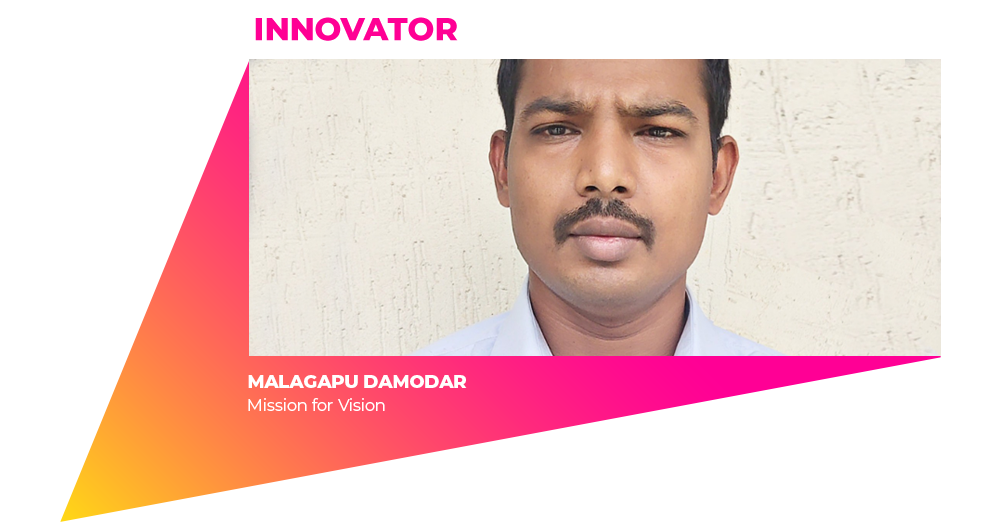Join a powerful, unprecedented alliance for better eye health for all.
Join IAPB-
Choose an alternate language here

Odisha is home to about 62 scheduled tribes of India. Reaching these tribal populations is quite a challenging task, as they reside in remote corners of this land in varying topographies. Navigating through the cultural nuances requires a lot of patience and an exhaustive understanding of the mindset and behaviour of these communities. Such a scenario demands creative thinking and innovation at every step.
Maneuvering through these layers of challenges, Malgapu Damodar has established a strong bond with these communities and this has been possible through his new ways of thinking. He primarily works in the regions of Rayagada and Berhampur that are 250 kms apart and often spends weeks away from home and family in order to serve the communities in both districts. His work as a Field Investigator involves collecting valuable evidence from these regions and this gives us an insight into the efficacy of the eye health interventions for these communities. Equipped with the technological tool of PRISM “Patient-Related Impact Studying Mechanism,” he gathers valuable evidence on quality of life, visual acuity and other dimensions of eye health systems. With the help of this tool, M. Damodar also plays a critical role in collecting information for research and to devise workable solutions for appropriate eye healthcare. He quickly adapted to these tech-tools as a duck takes to the water.
Though M. Damodar is fluent in local languages of this region (Odiya, Hindi and Telegu), he had to make special efforts in learning the tribal language called Kui. These communities are often reluctant to welcome outsiders. In order to build a strong connection with them, he learnt how to converse fluently in Kui, as the basic linguistic skills would not make the cut with these tribal populations.
In some cases when he noticed any resistance among the communities, he has thought of innovative ways to counsel the community members. He has taken the help of Village Heads to break the cultural barriers and in some instances, he has handheld the patient and their family at every step. He has also helped the build the confidence in these communities by way of highlighting the successful stories of people within the community who have received eye treatment. Eventually, he championed them in becoming eye health ambassadors in their community.
In the last six years, he has visited nearly 200 villages of Rayagada and Ganjam district; facilitated eye-testing for 15,000+ people; identified 4,000 patients in need of treatment and about 3,000 patients received treatment and underwent eye surgeries. Annually, M. Damodar refers about 500 patients for cataract surgeries; conducts 200+ patient satisfaction surveys and has worked in the remote regions of Odisha, Andhra Pradesh and Bihar.
“Vision is the most precious gift given to us. We value it only when we have eye-related issues. However, this mindset needs to change. We need to be proactive in seeking eye care and encourage our loved ones to do the same. I feel very privileged to be a part of Mission for Vision that focuses on restoring the gift of vision to every visually impaired human being and encourages communities to seek eye-care proactively. Since I work directly with communities, it gives me immense joy to see the effectiveness of the eye health interventions. Even though there are struggles and challenges in my line of work; the numerous smiling faces and the positive response to the treatment erases all my troubles and it transforms into a sense of fulfilment.
I will always remember this incident when I was traveling by bike and an elderly lady who had undergone cataract surgery recognised me from a great distance and welcomed me home with warmth and gratitude for the services rendered to her. It is the community members’ warmth, love and appreciation that encourages me to do more for them and I feel like they are my own family members now.”
– Malagapu Damodar